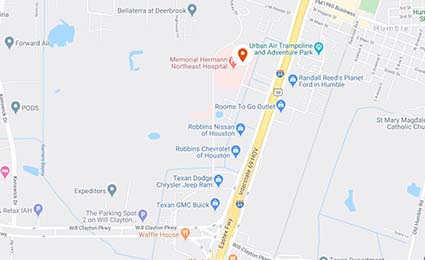Diabetic Neuropathy
What is Diabetic Neuropathy?
糖尿病神经病变是一种特定类型的神经哒mage caused by diabetes. In fact, diabetes is the leading cause of peripheral neuropathy, and about half of people with type 2 diabetes experience some nerve damage. It can be debilitating and painful, but treatment is available at UTHealth Neurosciences to limit damage and reduce symptoms so that you can maintain your high quality of life.
What You Can Expect at UTHealth Neurosciences
At UTHealth Neurosciences, our dedicated team uses the latest technology to accurately diagnose and treat each patient. We work in multidisciplinary teams of specialists who share insights, leading to better treatment decisions and outcomes. Throughout the treatment process, we will work closely with the doctor who referred you to ensure a smooth transition back to your regular care. While you are with us, you will receive expert care, excellent communication, and genuine compassion.
Causes of Diabetic Neuropathy
About half of people with type 2 diabetes have some degree of neuropathy because high glucose levels can damage nerves in feet, legs, and other parts of the body. Researchers aren’t sure why diabetes harms nerve cells. The risk of nerve damage increases the longer a person has diabetes. Obesity, smoking, and high blood pressure put diabetics at higher risk of developing nerve damage.
Signs of Diabetic Neuropathy
Symptoms can range from mild to debilitating, depending on the affected nerves and the extent of the damage. Symptoms may include numbness in legs and feet; digestive problems; and urinary tract issues. Patients might experience sharp pains, cramps, or an increased sensitivity to touch that can result in pain from even light contact, such as clothing against skin. Symptoms are often the worst in patient’s feet, and can include ulcers and infections. It sometimes results in the loss of a toe, foot, or leg. Some types of diabetic neuropathy can cause symptoms in the eyes, including double vision and pain behind the eyes. The American Diabetes Association recommends that diabetics be regularly screened for neuropathy.
Diagnosis
Your doctor will perform a physical examination and may order tests to measure your sensitivity to touch and nerve response. A nerve conduction test and electromyography might be used to measure electrical discharges in muscles and nerves.
Treatment
Keeping your blood sugar within your ideal range is the key to slowing nerve damage and improving existing symptoms. It is also important to keep blood pressure and weight in target ranges. A healthy diet and regular exercise will be important components of your long-term treatment plan. Medications that relieve nerve pain, including antidepressants and anti-seizure drugs, are sometimes options. Specialists can also help with other neuropathy complications, such as urinary tract and digestive problems.
Nerve Disorders
- Central Pain Syndrome
- Chronic Inflammatory Demyelinating Polyneuropathy
- Diabetic Neuropathy
- Guillain-Barré Syndrome
- Peripheral Neuropathy
- Peripheral Nerve Disorders
Contact Us
At UTHealth Neurosciences, we offer patients access to specialized neurological care at clinics across the greater Houston area. To ask us a question, schedule an appointment, or learn more about us, please click below to send us a message. In the event of an emergency, call 911 or go to the nearest Emergency Room.











